Filmmaker Roshan Sethi debuted his comedy A Nice Indian Boy starring his real-life partner Karan Soni as well as Zarna Garg and Sunita Mani at SXSW in Austin in 2024. The rom-com follows the relationship of Naveen (Soni) and Jay (Jonathan Groff), a white man adopted by two Indian parents. More than that, it unpacks the awkward inter-generational familial drama between Naveen, his parents (Garg and Harish Patel), and his sister (Mani). The movie also features actors Peter S. Kim and Sas Goldberg.
Since playing the festival circuit, the film has garnered reactions ranging from tears to laughter. However, there was one memorable — and unexpected — reaction Sethi received. “We’ve seen the gamut, but a lot of people crying and calling their parents afterward; renewed hope about their prospects of finding love; of coming out to us; of disclosing their plans to come out to their family… messages asking for me to read their personal statement for medical school,” said Sethi in a recent interview with GLAAD. “Because I’m a doctor, so someone was like ‘I love your movie. Can you look at my personal statement?'”
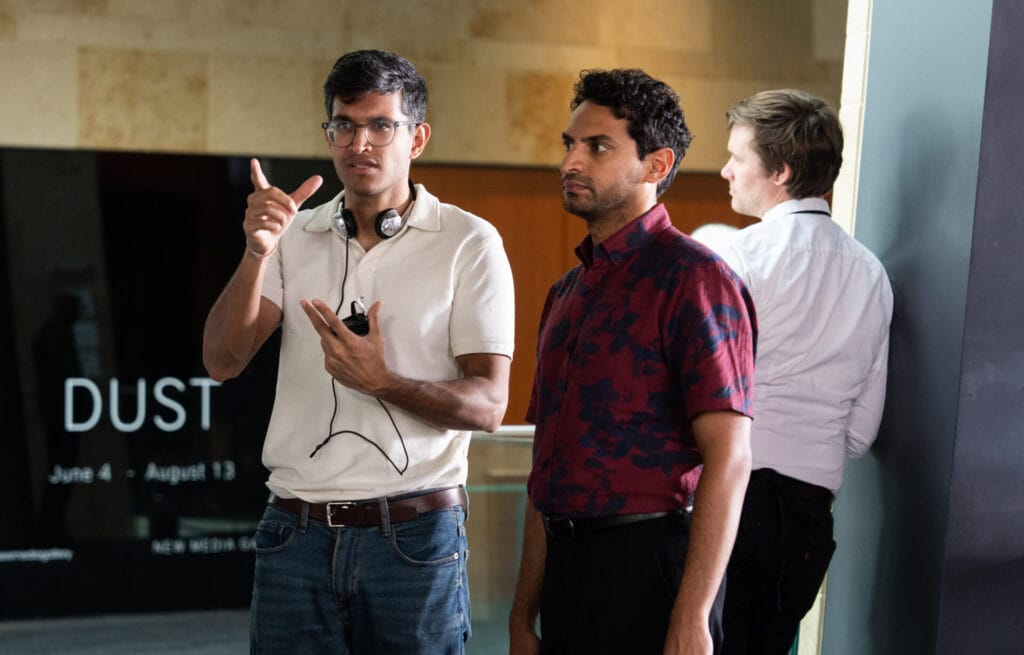
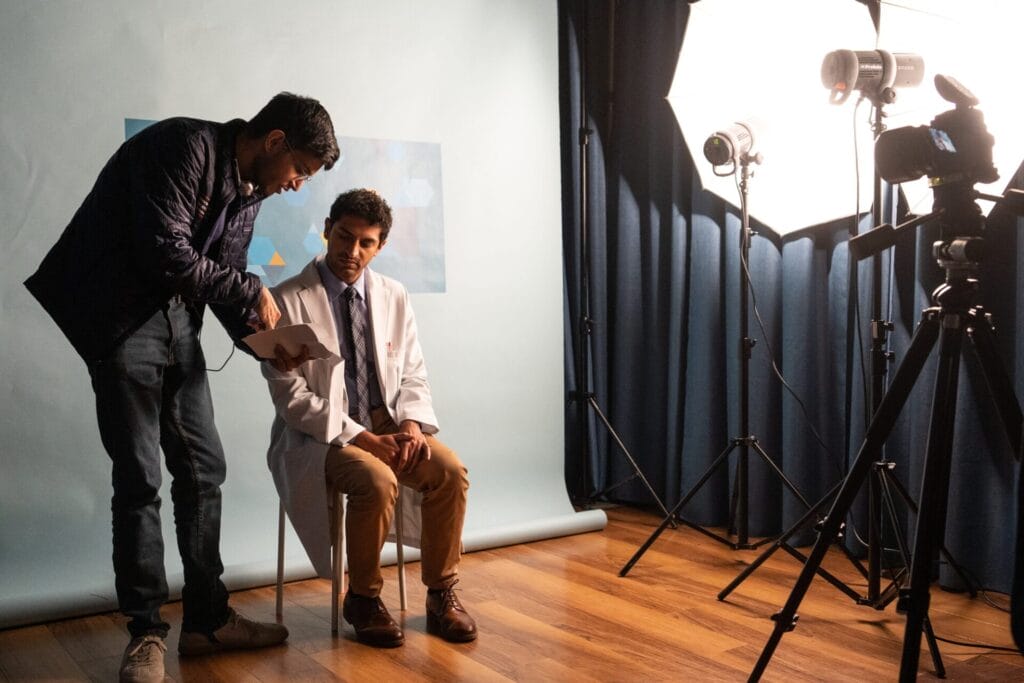
Since premiering at SXSW, Sethi knew that an indie queer rom-com with a South Asian family at the center would be a difficult sell for distribution. “We’re releasing a movie that was financed during very progressive times into very not progressive times,” he pointed out. “It has a completely different valence that it had when we made it and when it was financed.
As DEI continues to roll back and the threat to LGBTQ rights and visibility has been amplified, the future of representation of historically underrepresented communities in Hollywood has been in limbo. “It feels like we’re on the less helicopter out of a much more progressive era in Hollywood,” said Sethi, “but at the same time, I don’t think people have ever needed the movie more because it’s not a strident, traumatic view of being gay…it’s joyful and full of promise and hope; all emotions that our community — the queer community — needs more than ever.”
Soni added that when you work on something for so long, there is a certain point where the value of the project comes into question. “SXSW was so good for us ’cause we had got standing ovations at all three screenings… so it was just this really nice validation,” said Soni. “Since then, we played at a dozen other festivals and we hate traveling, but we’ve traveled with this movie because it is this weird infectious feeling to watch it with the audience and just to have conversations with people after. I think we both feel stronger than ever about how good the movie is, and we’re excited for more people to be able to see it than people who have not been able to before this.”
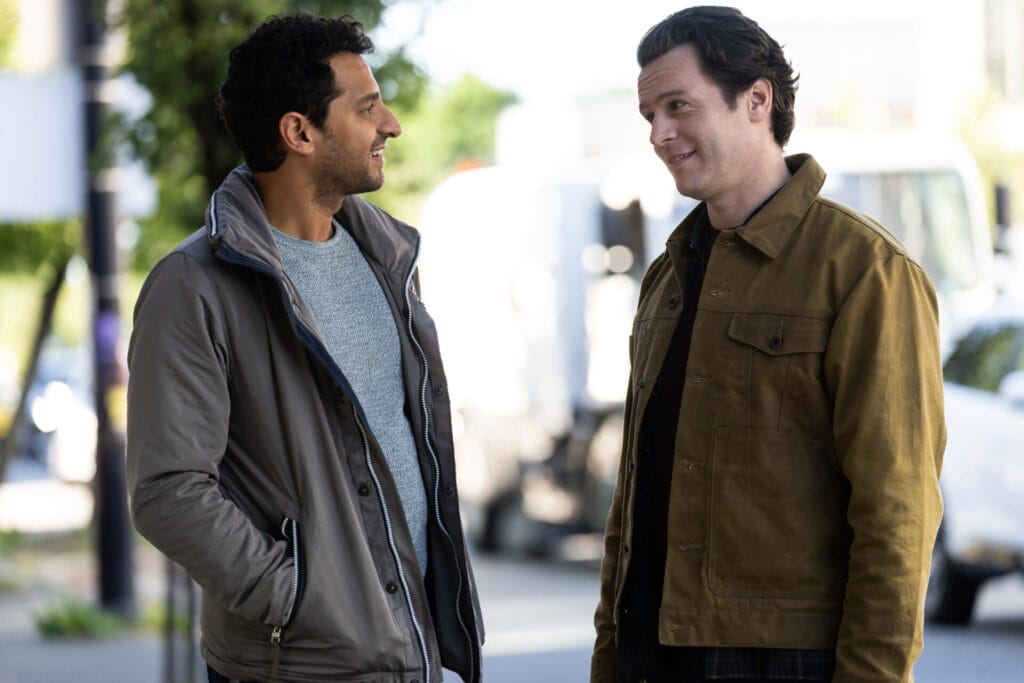
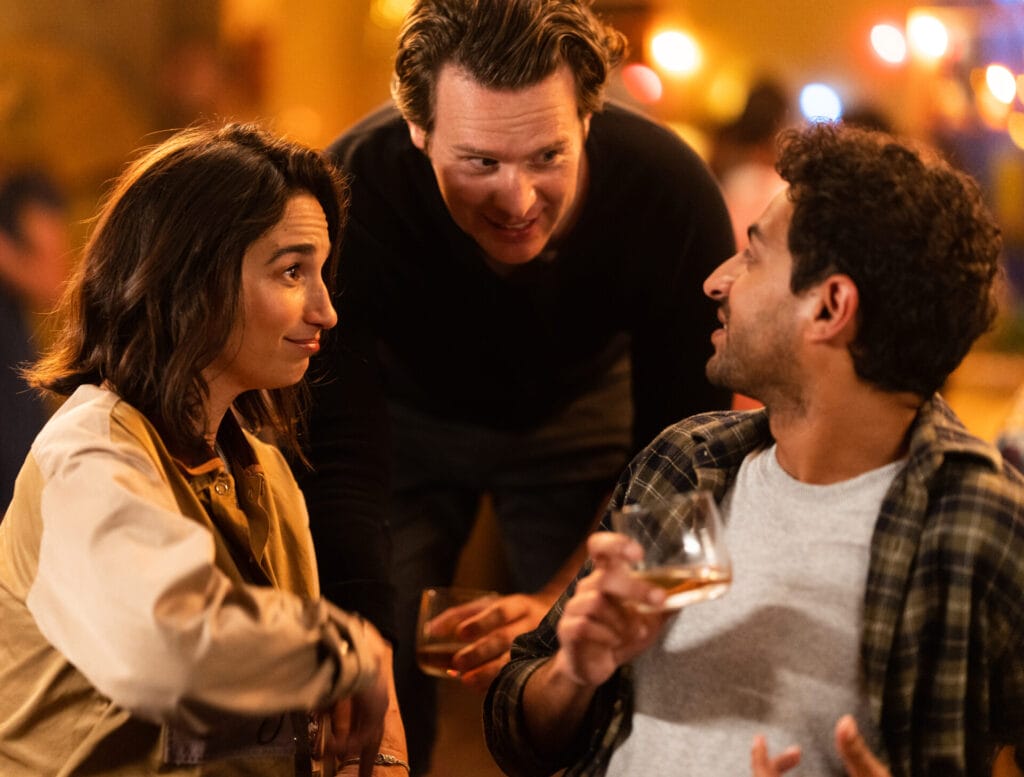
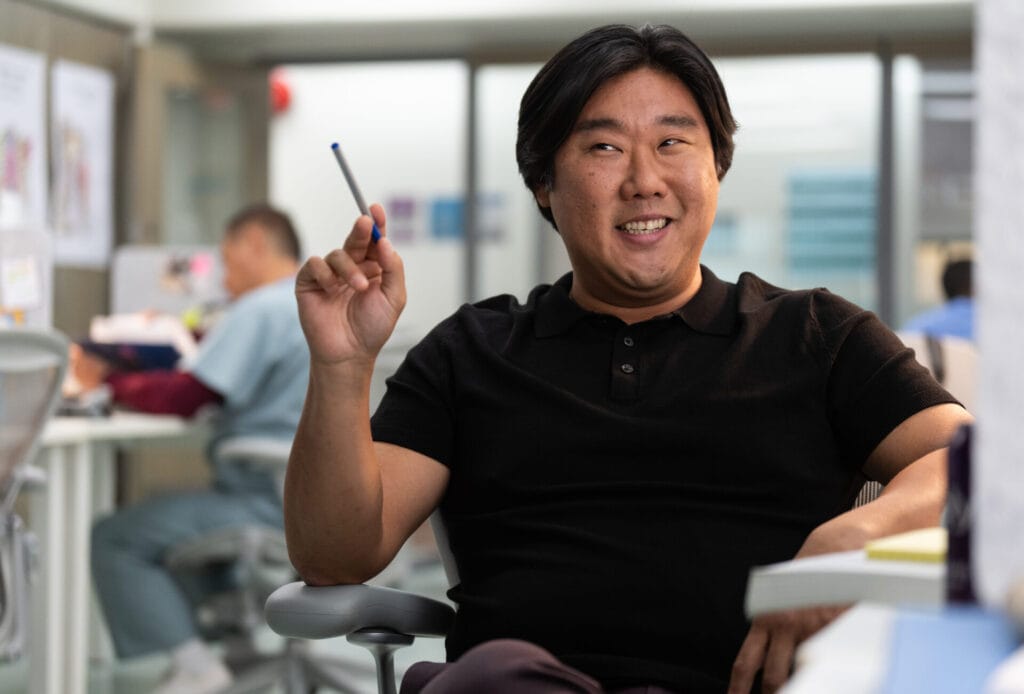
Sethi pointed out that the movie tested highest among white straight women so it’s not just for the LGBTQ community. However, there was another reaction that caught his eye. “When we did the test screening, a homophobe mistakenly attended it, not knowing the plot of the movie because we advertised the test screening by saying there’s a movie called A Nice Indian Boy,” Sethi explained. “She left a long review on her card, which people fill out after a test screening and in the review. She vacillated alternately from sentence to sentence between great affection for the movie and her own homophobia. She would say things like, ‘This is wrong, but I loved the movie’ and ‘It was so good. Acting was top notch, but it is wrong to be gay.’”
He continued, “I thought how interesting that we’ve led to this crisis and this homophobe because the movie is forcing her to acknowledge the inner life of someone who she fears. She worries it will somehow interfere with hers — and that’s the powerful thing. I think we have to move away from the idea that queer movies are for queer people and understand that the great beauty of queer movies or any movie that comes from a marginalized community is that other people can be led into our experience because they’re actually curious.”
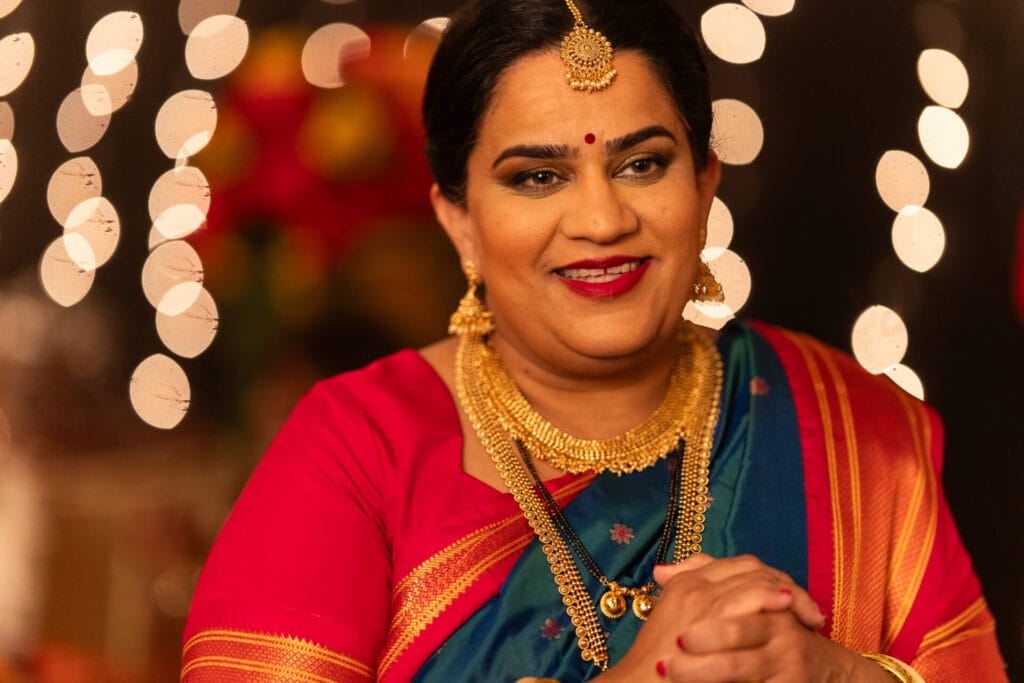
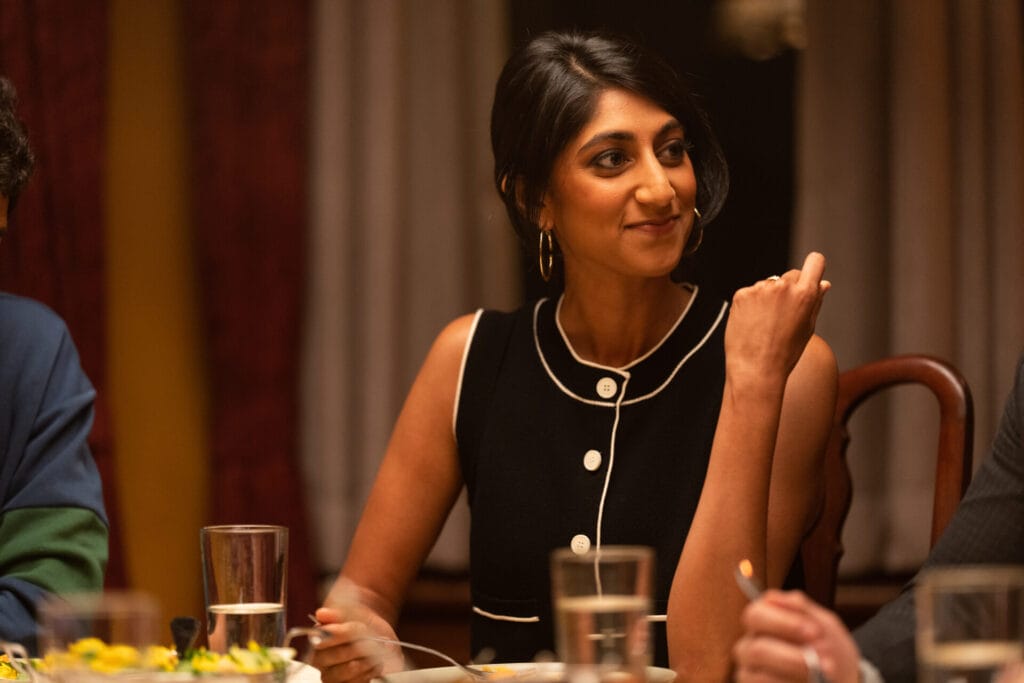
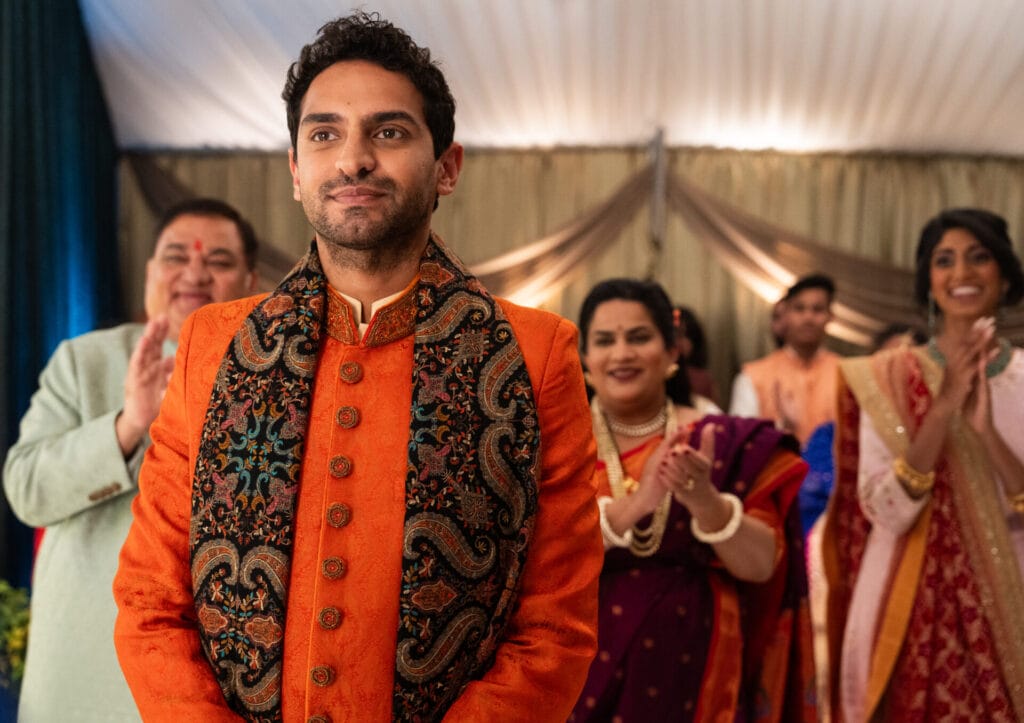
Playing the matriarch in the movie, Garg realizes the importance of the representation in this movie but ultimately, it’s a family story to her. “I think it’s time to not classify everything so severely because we’re living in a world where everything is now — it’s all happening together,” she said. “There’s problems all over the place and it’s just one awkward family movie. Everybody who’s part of a family unit can come in and relate.”
“This is just such a human story,” Mani chimed in. “If you get to take the time, which you should, you are learning so much about just the way people live and it’s in a time where we’re being so bombarded with bad news and fear-mongering… just open up a little bit and see the humanity of people.”
Sethi pointed out that the term “representation” is a mistake because it implies to the powers that be that these communities need to make movies so that they feel seen.”It all seems like a social justice initiative to help these randoms feel seen in movies. That’s how they see it. That’s how they perceive it from their perspective. The truth is we cannot rely on their politeness or their sense of social justice to get these movies made. We have to make what is ultimately a much more powerful argument, which is we make art more interesting.”
He continued to say that DEI has transformed into a kindness that reads like a consolation prize. The subtext is: Give minorities a chance, even though they don’t really deserve it. “There’s a difference between kindness and social justice & equity, and that’s what we lack in Hollywood.”
“As long as we don’t have DEI initiatives, as long as we’re not interested in equity, we will deprive the industry of actual talent and ability,” said Sethi, referencing how Star Wars, a very American film, is based on Japanese culture. “The most beautiful stories [and] the most beautiful art flows directly out of our differences. It doesn’t flow out of a bunch of white people talking to each other.”
A Nice Indian Boy is currently playing in theaters.












